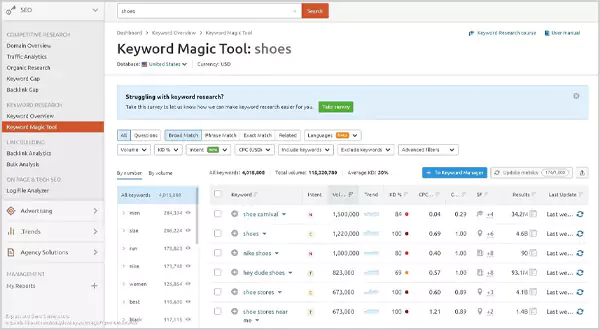Whether you are just starting or have been writing online for a while, knowing how to write SEO content that ranks is a must. SEO content writing is not just about stuffing keywords, it is about creating content that genuinely helps them.
I have written hundreds of blogs, and one thing I have learned the hard way is that thinking about SEO only after writing the content is a rookie mistake.
With the help of this guide, I will break down the basics of search engine optimization content writing and provide you with the 15 must-follow tips to create the best SEO strategy in 2026.
What is SEO Writing?

SEO writing is about creating content that ranks well on search engines like Google. The goal is to make sure your content shows up when people search for something related.
SEO content writers focus on the right keyword, make your content genuinely helpful, and structure it in a way that both readers and search engines can easily understand.
Search engines use bots (often called ‘spiders’) to scan web pages and figure out what they are about. If your content is clear, relevant, and optimized, these bots are more likely to recommend it by placing it higher in search results.
However, if it is not optimized, search engines might struggle to understand or trust the content. As a result, it could get buried in the rankings.
Why is SEO Content Writing Still Important?
Writing for SEO optimization is all about helping your content get discovered by the right people. When done right, it improves your visibility on Google and helps your digital marketing efforts, bringing in more readers, subscribers, and eventually, customers.
Let’s take an example, one of our SEO guides pulls over 6000 visitors each month. That’s because it follows key SEO web writing rules. It is well-structured, uses visuals, targets multiple related keywords, and links to other helpful pages.
In short, writing for search engine optimization builds a bridge between what people are looking for and what you have to offer. It is not just about traffic, it is about meaningful and lasting reach.
The Basics of Search Engine Optimization Content Writing
There is no magic formula to rank #1 on Google, but we know some things that help. Here are the basic things to keep in mind as an SEO content writer:
- Start with keyword research and find out what your audience is searching for.
- Use relevant keywords and phrases that your readers would naturally use.
- Include related terms (this helps the search engine understand your topic better).
- Avoid keyword stuffing; writing should sound natural, not forced.
- Balance is key for writing content for SEO. Write for humans first, but keep search engines in mind.
- Google prefers well-written and informative content.
- Focus on user intent; what questions or problems does your content solve?
- Try to add your unique point of view. Human touch and genuine expertise make content more trustworthy and valuable.
These are some crucial SEO steps to better Google rankings. Moving on, let’s explore the top 15 rules to follow as an SEO writer in detail.
15 Must-Follow Tips for Writing SEO Content

Search engine optimization writing is more than just filling up space on a page. To help you stay focused on what matters, here are 15 practical tips to make your content rankable and SEO-friendly without sounding robotic.
1. Keyword Research

Before you write anything, figure out what your audience is searching for. Keyword research tools like Ahrefs, Google Keyword Planner, or SE Ranking show you popular research terms. Also, check Google Trends to see if a keyword is gaining or losing popularity over time.
Need more ideas? You can also peek at what keywords you rank for. It might inspire your next blog topic. Just remember not to always go for the most obvious keywords. Tends change, and so should your strategy. Keep reviewing your keywords regularly.
2. Stay Updated with Google’s Algorithm
Google is the most popular search engine, and you should be aware of its algorithm to effectively write SEO content. Google keeps updating its rules to show users the best content.
If you know what Google values, like quality, helpfulness, and clarity, your content has a better chance of ranking. It is a good habit to stay on top of major updates so you can adjust your strategy if needed.
3. Write for Your Readers First
A good SEO content writer should genuinely try to help people. That means understanding what your readers are looking for and giving them clear, useful answers.
Keywords can guide your writing, but they should not take over. Avoid stuffing keywords just for the sake of it; your content should sound natural and human, not robotic. If it feels forced, people will leave your page quickly, which can hurt your rankings.
You should focus on one topic at a time. It is better to cover a single subject well than to use too many keywords that don’t quite fit.
4. Use Keywords Smartly
It is important to place your keywords where they matter most, without overdoing it. Try to include your focus keyword:
- In your headings (like H1, H2, or H3)
- At the beginning of your post
- Naturally, through the main content
- Once in the final paragraph
Including this in your SEO website content writing strategy helps search engines understand what your content is about. This makes it easy for the right people to find it. The goal is to make it feel organic search engine optimization and not forced.
5. Make Your Headings Work for You
Headings are not just for style, they help both readers and search engines. Think of your H1 as your article’s title, which sets the stage. Your H2s, H3s, and so on break the content into clear sections.
These subheadings should match what’s actually in that section and include relevant keywords your audience is searching for. Doing this in your SEO web writing not only improves readability but also boosts your chances of showing up in search results.
6. Use Meta Descriptions Wisely
If you are skipping meta descriptions while content writing for SEO, you are likely missing out on valuable traffic. A meta description is the short summary that appears under page title on Google search results.
It helps both users and search engines understand what your post is about. To make it effective:
- Keep it short and to the point.
- Add one or two keywords naturally.
- Write something that grabs attention to stand out in the competition.
Most blogging platforms have a built-in space to add a meta description. Do not forget to use that space to stand out.
7. Focus on Quality Content
SEO writing does not work without good content. You can optimize all you want, but if the content is not useful or trustworthy, it won’t rank. Good content is accurate, helpful, unique, easy, and enjoyable to read.
If you are writing on serious topics like health, money, or law (what Google calls YMYL content), the bar is even higher. Bad advice in these areas can naturally harm people. That is why Google expects expert-level quality.
It is smart to bring in professionals who understand the topic to ensure the content is correct and credible. That’s how you build trust and authority.
8. Add Alt Text to Images
Alt text is a short written description of an image. It helps search engines understand your visuals and also makes your site more accessible to people using screen readers.
In short, every image should have alt text. It improves your SEO writing and makes your content more inclusive.
9. Use Visuals to Boost Your Content

Images and graphics make your posts easier to read and understand. Infographics, charts, and diagrams can explain things better than text alone.
They also help in breaking up long paragraphs, making your page more engaging. And if your visuals are really good, other websites might use them and link back to you, helping your SEO through backlinks.
10. Effectively Use Internal Links
Linking to other pages on your website helps guide readers to more useful info and also boosts your site’s overall visibility on search engines.
However, make sure that they genuinely add value and fit naturally with the topic. For example, if you are writing travel guides, you could like posts like:
- Best places to visit this summer in Europe
- Top places to visit alone
- 10 essentials to carry while travelling
- Best travel credit cards to save money
11. Include Credible External Sources
When you reference facts, stats, or studies, link that information to trusted websites. It shows your content is well-researched and accurate.
When writing for search engine optimization, here are some good times when you should consider including external links:
- Data or statistics
- Reports or research findings
- Expert interviews or case studies
Just be sure you are linking to the most recent and reliable info, since outdated sources can hurt your credibility.
12. Don’t Rely on AI-generated Blogs and Content
AI tools are useful, but full AI-generated blogs often sound robotic, and search engines can easily identify this. This can easily hurt your rankings.
Instead of using AI to create full blogs, use AI to support your process. Let it help you brainstorm ideas, build outlines, or check SEO gaps. For example, you can ask AI tools to suggest updates or check if you are using the latest data.
13. Add an FAQ Section
Search engines love clear and straightforward answers to common questions. Adding an FAQ section in search engine optimization content writing makes it more helpful and increases the chance of being featured in search results.
It is also a simple way to refresh an old blog and boost its SEO without rewriting and updating everything.
14. Use Short and Clean URLs
Keep your website links short and to the point. Instead of using the full title of a page, just include the main keyword. You can skip unnecessary words like ‘the’ or ‘a’ Also, avoid adding dates or numbers in the URL because if you ever update the content later, it becomes a hassle to change the link.
15. Make Sure Your Site Works Well on Mobile

Most people now visit websites on their phone, so your site should look and work great on mobile too. A smooth mobile experience is not just good for users, it also helps your site rank better on Google, which looks at the mobile version of your site first.
There is a huge role of user experience in SEO. Many popular platforms automatically create a mobile-friendly version of your site. Just switch to the mobile view in the editor and check that everything looks good. Make sure the menu and buttons are easy to find and use.
You should make it a habit of implementing these 15 tips for your SEO writing. These are the primary rules that can significantly impact your search engine ranking.
SEO Content Writing Checklist
To help you start with these effective tips and rules, you can use this checklist to make sure your content hits the mark:
Pick the right keyword
Understand the intent
Write a clear and catchy title
Keep it simple and readable
Use headings and subheadings
Add your keyword thoughtfully
Add internal and external links
Write a strong meta description
Use visuals smartly
Add alt text to images
End with a clear call-to-action
Keep URLs short and clean
Make it mobile-friendly
Avoid irrelevant things
Avoid AI for writing blogs
Keep your content fresh and accurate
Wrapping Up
Search engine optimization content writing can feel like a lot to handle, especially for writers. It is a long-term game, not a quick win. But the key is simple – keep creating useful, trustworthy content, and make sure it is optimized well.
Search engine rules keep changing, so staying updated is also important. Now that you know how to write great SEO content, it is time to apply it and keep at it regularly.
Frequently Asked Questions (FAQs)
Q. What is SEO content writing?
Ans: It is the process of creating web content with the primary goal of improving a website’s visibility in search engine results pages (SERPs).
Q. How to find keywords for SEO?
Ans: For your keyword research, you can utilize tools like Google Keyword Planner or Semrush.
Q. What is the role of an SEO content Writer?
Ans: The job of an SEO writer is to make sure that the content ranks high on search engines for relevant keywords.
Q. Which Search Engine Optimization tool is best?
Ans: Some of the most popular and highly-rated options are Ahrefs, SEMrush, and Moz.










